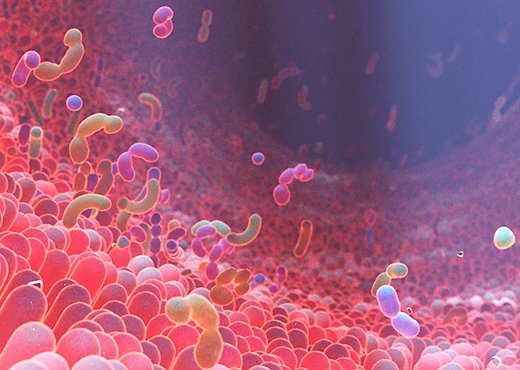
In this article, we’ll explore the common health issues that can affect charcoal chinchillas and how to prevent them. Just as you’d create a cozy space for a friend, providing the right environment and care for your chinchilla is key to keeping them happy and healthy. Think of it as building a little fortress of fluffiness where they can thrive!
Understanding Common Health Issues
Chinchillas, especially the charcoal variety, are generally healthy pets, but they can experience health problems if not cared for properly. Common issues include dental problems, respiratory infections, and gastrointestinal issues. Let’s dig deeper into what these concerns are and how to spot them.
First, dental problems often arise due to their continuously growing teeth. If a chinchilla’s teeth don’t wear down properly, they can become overgrown, leading to pain and difficulties eating. Watch for signs like drooling, losing weight, or difficulty chewing. Regularly providing hay and chew toys can help keep those teeth in check.
Next up, we have respiratory infections. These can occur if chinchillas are exposed to dust, cold drafts, or poor ventilation. Look out for symptoms like sneezing, nasal discharge, or labored breathing. Keeping their living area clean and maintaining a stable temperature can help prevent these infections.
Finally, let’s talk about gastrointestinal issues. A chinchilla’s digestive system is quite sensitive, and changes in diet or stress can lead to problems. Symptoms may include bloating, loss of appetite, or lethargy. Providing a consistent diet and minimizing stressors in their environment can go a long way in keeping their tummies happy.
How to Provide a Safe Environment
Creating a safe and comfortable environment for your charcoal chinchilla is crucial. Just like you wouldn’t want to live in a messy room, chinchillas thrive in clean, well-organized spaces. Start by ensuring that their cage is spacious enough for them to hop around. The minimum recommended size is about 24x24x48 inches.
Cleaning their habitat regularly is also essential. You should spot-clean daily and do a thorough cleaning weekly. Use safe, non-toxic cleaners and change their bedding often. A clean environment reduces the risk of respiratory issues and keeps your chinchilla feeling fresh.
Another important factor is temperature control. Chinchillas thrive in cooler temperatures, ideally between 60-70°F (15-21°C). Avoid placing their cage in direct sunlight or near heating vents. A cooler room mimics their natural habitat and helps prevent overheating, which can be fatal.
Finally, consider enrichment in their space. Adding toys, tunnels, and hiding spots can reduce stress and keep your chinchilla entertained. This will not only make them happier but can also help prevent behavioral problems linked to boredom.
Nutrition for Healthy Chinchillas
One of the key aspects of keeping your charcoal chinchilla healthy is through a well-balanced diet. Their diet should primarily consist of high-quality hay, which is essential for their digestive health. Timothy hay, for example, is a great choice. You might be wondering, “Why hay?” Well, it provides the necessary fiber to keep those guts moving and prevents gastrointestinal issues.
In addition to hay, chinchillas can have pellets, but be sure to choose a high-quality brand designed specifically for them. Look for ones that are high in fiber and low in fat. Fresh vegetables can be introduced in moderation, but avoid anything high in sugar or starch, as it can upset their digestive balance.
Don’t forget to provide fresh water! A water bottle is usually better than a bowl, as it keeps the water clean and reduces the risk of spills. Change the water daily to ensure they stay hydrated.
Lastly, consider offering small amounts of treats, like dried herbs or certain fruits, but remember: moderation is key. Too many treats can lead to obesity and other health issues.
Spotting Signs of Illness
Being observant is vital when it comes to your chinchilla’s health. Just like you’d notice if a friend wasn’t feeling well, there are signs that indicate your chinchilla may be under the weather. Here are a few signs to keep an eye on:
– Changes in Appetite: If your chinchilla suddenly refuses to eat or drink, it could be a red flag.
– Lethargy: A noticeable decrease in energy or playfulness is another symptom to watch for.
– Weight Loss: Regularly weigh your chinchilla to monitor their health. Any significant weight loss is cause for concern.
– Abnormal Behavior: If your chinchilla is acting differently—like hiding more or becoming aggressive—this may indicate stress or pain.
If you spot any of these signs, it’s best to consult with a veterinarian who specializes in exotic animals. Quick action can make all the difference in catching a health issue early.
Routine Veterinary Care
Just like we go to the doctor for regular check-ups, chinchillas benefit from routine veterinary care. Ideally, you should schedule a vet visit at least once a year. During the visit, the vet will check their teeth, fur, and overall health.
Dental health is especially important. A vet can assess if the teeth are wearing down correctly and trim them if necessary. They’ll also check for any signs of illness that you might not have noticed.
Vaccinations may not be required for chinchillas, but your vet can provide guidance on any preventive care that’s appropriate. Discuss diet, habitat, and any behavioral concerns during your visit. This is a great time to ask questions—your vet is a valuable resource!
Regular vet visits help keep your chinchilla in tip-top shape. Think of it as giving them a little extra love and care.
Final Thoughts on Chinchilla Health
Owning a charcoal chinchilla can be an incredibly rewarding experience. Providing the right environment, nutrition, and routine care can help prevent many health issues. Remember, the key is to be proactive rather than reactive. By watching for signs of illness and ensuring a safe living environment, you’re setting your furry friend up for a long and happy life.
So, grab that carrot or treat, and enjoy the quirky moments with your chinchilla. You’re part of their little world, helping them thrive every day!
